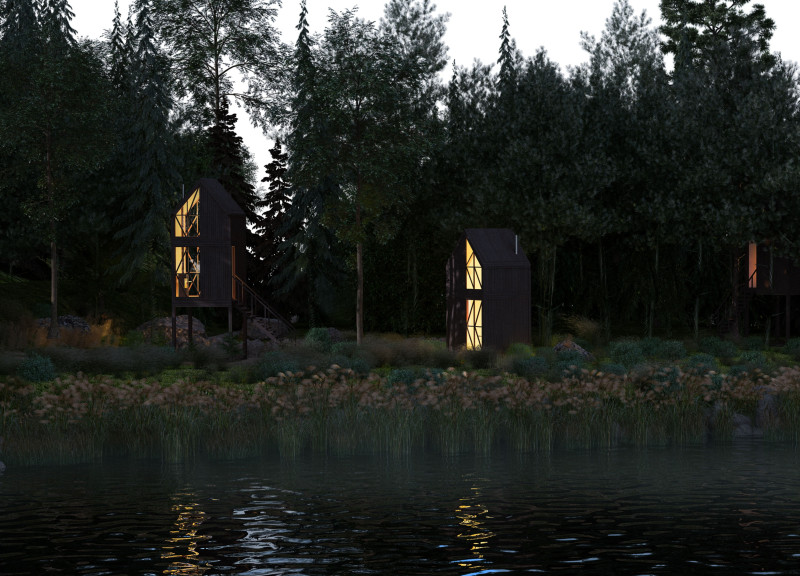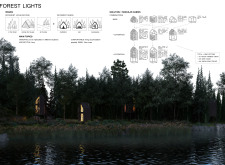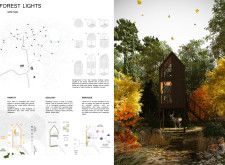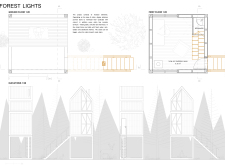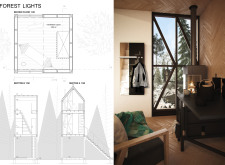5 key facts about this project
The "Forest Lights" project is a modular design situated in diverse natural landscapes, including forests and lakes. It aims to provide a living solution that combines essential functions with spaces for meditation and reflection. The overall concept revolves around adaptable cabin modules that cater to both user needs and the surrounding environment.
Modular Design
The layout features a collection of cabins, each designed to be arranged in different configurations based on site characteristics. Each cabin consists of two main parts: a lower section that addresses basic living requirements and an upper section dedicated to meditation and creative activities. This design approach enhances the experience of occupants while connecting them more closely with nature.
Environmental Integration
By elevating the cabins, the design minimizes contact with the ground, thus reducing its impact on the ecosystem. This elevation serves a dual purpose; it decreases environmental disruption and embodies themes of mindfulness and detachment. Such integration aligns the structure with the meditative experiences it aims to foster, allowing inhabitants to feel a part of their surroundings.
Material Considerations
Wooden frames are used for the cabin structures, providing both support and visual appeal. Unique features also include ecological insulation made from recycled paper, enhancing energy efficiency while reducing noise. These material choices indicate a commitment to sustainability and environmental responsibility, which is an integral part of the project.
Functional Amenities
Each cabin is equipped with necessary facilities, like dry toilets and water storage systems, which promote self-sufficiency. The design includes communal spaces and paths leading to meditation houses, ensuring that occupants can easily transition between private and shared environments.
Elements such as the modular arrangement and elevated design come together to create spaces that encourage a deeper interaction with the surrounding landscape, enhancing the overall experience of tranquility and connection with nature.


